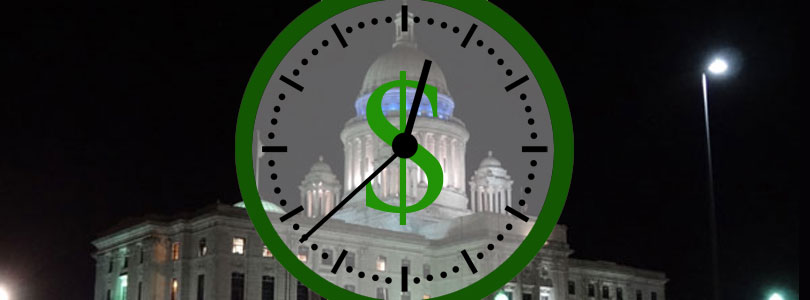Two Non-Tax Reasons to Vote Against the Bonds on March 2
Yes, yes, we should probably expect that all of the bonds on the ballot for Tuesday, March 2, in Rhode Island will pass. The deck is just too thoroughly stacked in their favor. The special interests who benefit by these hundreds of millions in borrowed dollars have incentive to pay for get-out-the-vote campaigns, while the rest of us have only a relatively small hit to the pocket-book down the road.
Of course, that’s not how it happens. Rather, as debt service takes up an increasing portion of our budget, government moderates the tax increase by reducing the reliability of other services. Meanwhile, all the other pressures on the budget (regular inflation, labor union premiums, waste, fraud, and abuse) make the whole thing one glob of expensive government of which bonds are only one cause.
But if you’re looking for some reason to motivate yourself to go out and vote against the bonds only because it’s the right thing to do, here are two.
They aren’t even all capital expenses.
A case can (maybe, kinda, sorta) be made that debt is appropriate when government spends on something that people in the future will enjoy. If you build a bridge or something, people will be driving on it decades from now, so it almost becomes a usage tax to spread out the payment for that bridge over decades.
However, not all of these bonds are broad-based capital.
For instance, the $65,000,000 in “affordable housing” will certainly benefit the companies that build the houses and the people who are able to live there, but by definition, they aren’t paying the full costs. You are. Depending on your politics, maybe you’re fine with that, but the justification for spacing out the payments with debt goes away. The same is true of the early childhood, arts, and cultural facilities. These are all simply handouts.
They are just wasteful.
The state is estimating 5% interest on these bonds. The first thing to note is how outlandish that is if you understand how investment works. These bonds — backed by the full faith and credit of every taxpayer in Rhode Island now and until the end of the state — are about as sure an investment as can be. The investors, therefore, aren’t really taking a risk. They’re just letting us use their money for a while. The high interest rate therefore looks a bit like a giveaway to another special interest: the investment firms that dabble in these things.
That being the case, it really doesn’t make sense to pay $241,940,697 to borrow $400,000,000. That’s 60%!
Think about this. If the state just found the $15,000,000 for the early childhood expense in its budget, it would save all of the money for the arts and preservation grants and then some. Pay for the higher education facilities out of the budget, and you don’t have to borrow for the affordable housing project. And so on.
This is the sort of thing that government officials do when the people paying the bills are last in the line of their concerns.




